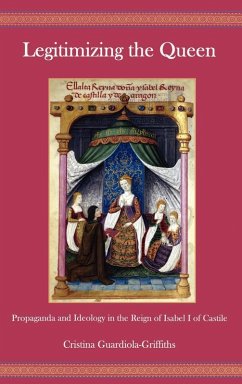Legitimizing the Queen deals with a genre particular to the Middle Ages: the specula principum (mirror of prince). Its importance as an object of study may be understood in light of the political instability that wracked the Castilian fifteenth century. The many works written for and dedicated to Isabel I of Castile depict her kingdom as a shipwrecked boat, a wayward realm, and a land of bankrupt people. These works suggest the kingdom's need for redemption through the strong leadership of the Catholic monarchs. These largely propagandistic works were designed to garner power, and once maintained, further Isabel's agenda. This book frames the concept of sovereignty from the theoretical perspective of the speculum principum dedicated to her. It offers a Bourdieuian approach to the more literary specula texts used to legitimize and uphold Isabel's power. This book reveals propagandistic qualities promoting the ideology necessary to legitimize and support Isabel's claims to the throne. Written primarily between 1468 and 1493, these works are literary artifacts that mark the rise to power of a female sovereign. The study discusses the various strategies of legitimation employed by these propagandists whose works circulated within noble and royal courts, and presumably extended into Castile as justification for her sovereign claim to the throne. By analyzing fifteenth century texts from within a modern critical framework, this book reexamines Isabel's position as queen and contributes to the understanding of her shared sovereignty in a period political and social evolution.








